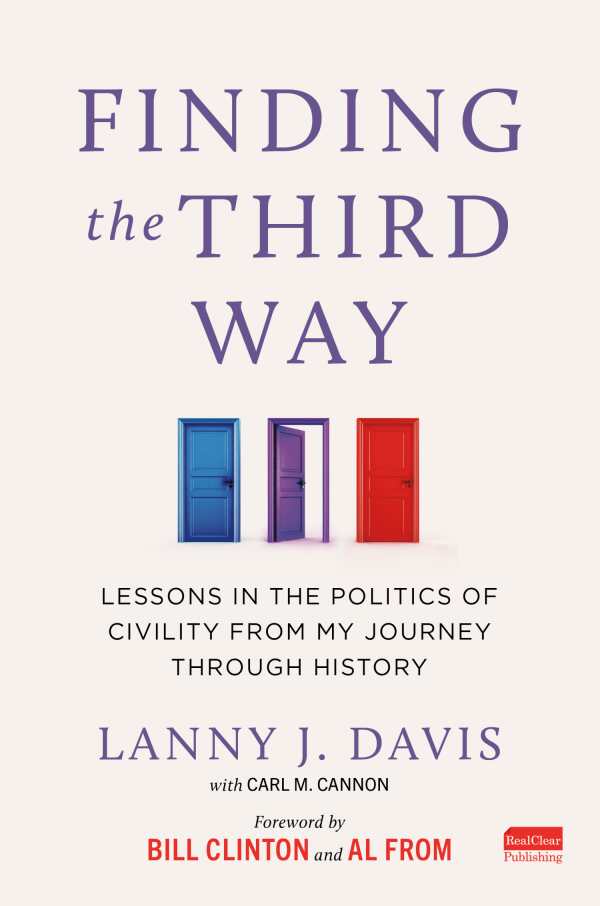Finding the Third Way
Lessons in the Politics of Civility from My Journey through History
Encouraging people to form friendships with those on the other side of the aisle, Finding the Third Way is an optimistic political memoir.
Lanny J. Davis’s observational political memoir Finding the Third Way is about his interactions with, and the influences of, significant political figures throughout his life. There’s coverage of the expansive love for others that his mother taught him, and of the notable friends he made at Yale, including George W. Bush, a fraternity brother with differing political views. Elsewhere, Davis reflects on Bill Clinton’s presidency too.
The connecting thread between the book’s various incidents is Davis’s emphasis on political service as opposed to interparty fighting, with the book suggesting that too much of the latter explains the explosion of contemporary tensions. Indeed, beyond the book’s entertaining tales of college exploits and ill-fated congressional runs, a clear argument is made about how people should conduct themselves in public life. The “third way,” a phrase borrowed from Bill Clinton, is introduced as a means of listening to a wide range of people’s needs; it is said to exemplify a willingness to negotiate and a refusal to resort to badmouthing one’s opponents as a main form of campaigning and governing.
Attributing contemporary political divisiveness to fractures within the Republican Party and the behaviors of certain left-wing groups who are accused of being too “purist,” the book eschews such negative behaviors and instead encourages forming friendships with people on the other side of the aisle. But its arguments for taking the third way are underexplored beyond the presumed benefits of bipartisanship, and some counterarguments are dismissed with credulity-straining speed, as with critiques of the Democratic Party’s handling of the needs of the working class. Further, while the book acknowledges that the third way is an insufficient means of dealing with those who work in bad faith, it does not pronounce solutions to such shortcomings.
Still, there is appeal to the book’s approach to its fraught subject. Narrated in a nostalgic tone, it trades between personal memories, passionate opinions, and cultural asides on baseball and the theater with charm. Mentions of topics covered in Davis’s other books prove distracting to its progression, though, and some events, rather than being covered on their own merit, are made too representative of the book’s perspectives on interpersonal and interparty relations, as when Davis discusses the bonds he formed with Bill and Hillary Clinton. Nonetheless, Davis does an effective job of humanizing the political figures he mentions via pertinent details about them, and the book’s witty observations about life in Washington, DC, are involving.
Finding the Third Way is an engaging memoir–cum–political manifesto that preaches the importance of civic duty, seeing the humanity in others, and learning from one’s mistakes.
Reviewed by
M. W. Merritt
Disclosure: This article is not an endorsement, but a review. The publisher of this book provided free copies of the book and paid a small fee to have their book reviewed by a professional reviewer. Foreword Reviews and Clarion Reviews make no guarantee that the publisher will receive a positive review. Foreword Magazine, Inc. is disclosing this in accordance with the Federal Trade Commission’s 16 CFR, Part 255.

